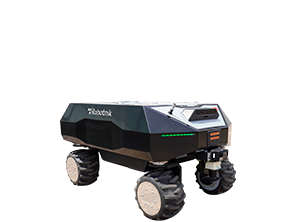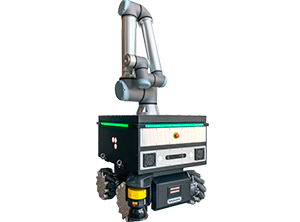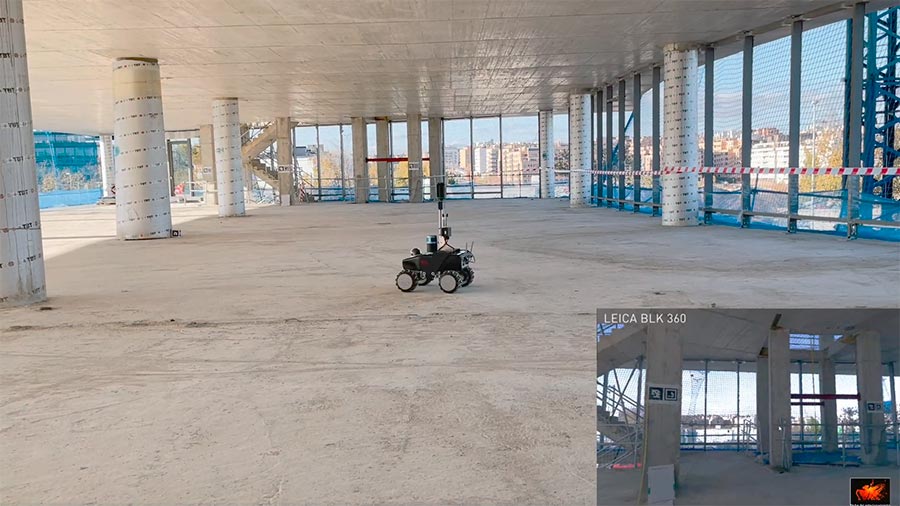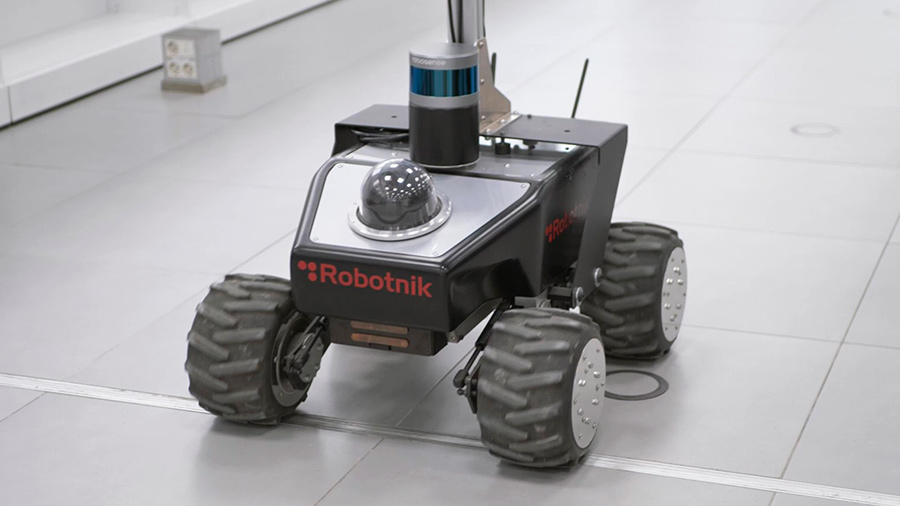Robotnik answers about what is a mobile robot platform and the applications in construction sector.
The use of robotic platforms is spreading to more and more sectors. Among the most popular environments are manufacturing or warehouses, but Robotnik’s experience in numerous R&D projects shows that nowadays the use of a robotic platform is not limited to a factory, and its applications go far beyond the transport of goods.
What are mobile robotic platforms?
A mobile robotic platform is a machine with software, sensing elements and other technologies that enable it to recognise, move and interact with the environment, depending on possible unforeseen events.
Robotnik’s autonomous mobile robotic platforms are an example of the new concept of robust and intelligent UGV (Unmanned Ground Vehicle) platforms with capabilities you may not be aware of.
The fact that all Robotnik’s robotic platforms run on open source ROS and are fully modular, means that the end user can integrate sensors, cameras and other components necessary for the application required.
Miquel Cantero, R&D Project Manager at Robotnik, tells how different Robotnik robotic platforms are operational in sectors such as construction and in applications such as inspection and maintenance, among others.
Interview with Miquel Cantero, Project Manager at Robotnik.
My name is Miquel Cantero, I’m a project manager at Robotnik. I can mention some of the R&D projects that I’m involved right now:
PILOTING project: the objective is deploying different robots in different areas but mainly focused on inspection.
BIMPROVE. We are collaborating not only in a robotic solution but also in a more general view of the construction sector related with new technologies. For this project, we develop a mobile robot based in our SUMMIT-XL that integrates a laser scanner and a thermal camera so that we can reconstruct the environment and have an updated state of the construction site in real time.
HERON project is still starting. We are delivering a mobile robot that will help on the maintenance operations of the different roads.
In my opinion, the robotics sector still faces significant challenges. For example, there is still a long way to go in terms of navigation and localisation.
PILOTING, BIMPROVE and the recently initiated HERON, are 3 of the European R&D projects that Miquel manages as a Robotnik representative.
The use of robotic platforms has increased significantly for inspection tasks with the aim of reducing or mitigating accidents in the construction sector.
Example of mobile robotic platform
The above-mentioned SUMMIT-XL, for example, is the robotic platform designed to operate autonomously indoors and outdoors with a load-bearing capacity of up to 65 kg.
One of the advantages it brings to any inspection mission such as the one it performs at BIMPROVE is that it can navigate autonomously or be teleoperated by means of a Pan-Tilt-Zoom camera that transmits video in real time.
This mobile robotic platform allows two types of configurations: with mecanum wheels or with rubber wheels. The former are recommended for indoor spaces while the latter are suitable for outdoor environments. This makes the robot an agile and highly mobile vehicle.
In addition, the SUMMIT-XL robotic platform, just like all robots in Robotnik’s portfolio, uses an open and modular control architecture based on ROS.
Want to know which mobile platform is the best fit for your business?




